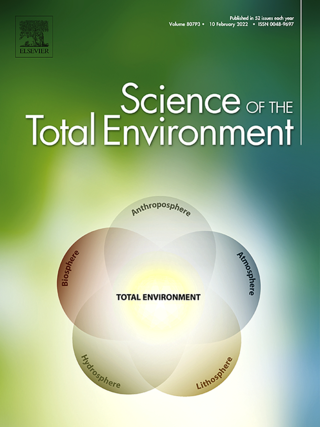Science of the Total Environment
Academic journal From Wikipedia, the free encyclopedia
Science of the Total Environment is a weekly international peer-reviewed scientific journal covering environmental science. It was established in 1972 and is published by Elsevier. The editors-in-chief are Damià Barceló (Consejo Superior de Investigaciones Científicas), Jay Gan (University of California, Riverside) and Philip Hopke (University of Rochester).
 | |
| Discipline | Environmental science |
|---|---|
| Language | English |
| Edited by | Damià Barceló, Jay Gan |
| Publication details | |
| History | 1972–present |
| Publisher | |
| Frequency | Weekly |
| 8.2 (2023) | |
| Standard abbreviations | |
| ISO 4 | Sci. Total Environ. |
| Indexing | |
| CODEN | STENDL |
| ISSN | 0048-9697 (print) 1879-1026 (web) |
| LCCN | 72624869 |
| OCLC no. | 321079391 |
| Links | |
Controversies
The October 2020 article suggesting that amulets may prevent COVID-19[1] has been met with skepticism[2] even among the listed coauthors.[3] As of November 2020, the article was under "temporary removal".[1] It was later withdrawn at the request of the authors.[4] The editor in-chief, Damià Barceló, was implicated in a €70,000 per year scheme to publish articles under the affiliation of King Saud University, Saudi Arabia.[5] Such schemes are employed to boost a university's rankings and are considered unethical by academics.[6][7]
Abstracting and indexing
The journal is abstracted and indexed in:
According to the Journal Citation Reports, the journal has a 2023 impact factor of 8.2.[10] As of October 2024[update], the journal's indexation in the Science Citation Index Expanded is "on hold" and pending re-evaluation, with Web of Science citing the concerns on "the quality of the content published in this journal" as a reason for the suspension.[11][12]
References
External links
Wikiwand - on
Seamless Wikipedia browsing. On steroids.
